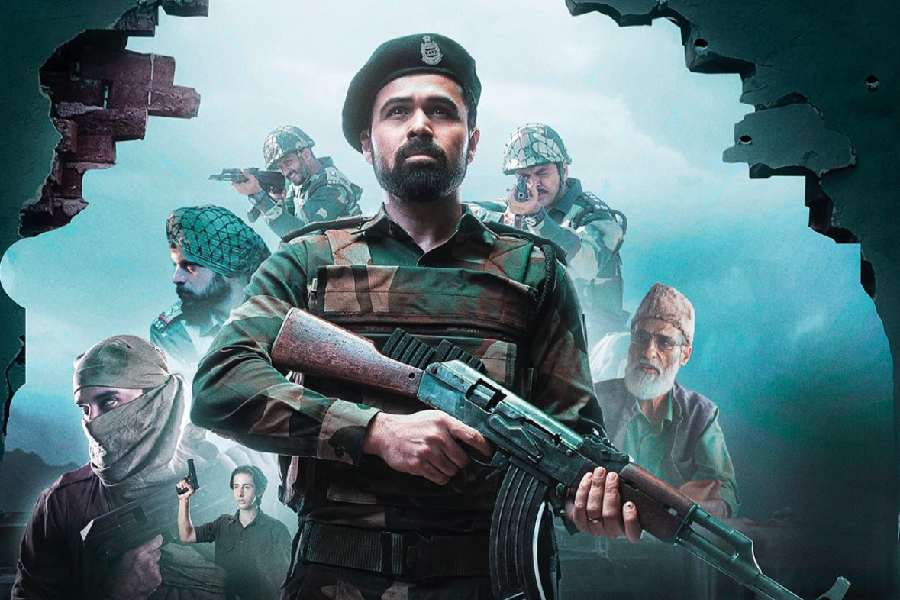“Humein kya sirf Kashmir ki zameen chahiye, ya wahan ke log bhi? (Do we only want Kashmir’s land or also the people of the state?)” — This poignant question posed by Emraan Hashmi’s character, a BSF officer, just before an anti-terror operation, encapsulates the essence of Ground Zero, the Tejas Prabha Vijay Deoskar-directed action drama that hit screens on Friday.
At a time when mainstream ‘patriotic’ action thrillers often resort to chest-thumping nationalism, Ground Zero opts for restraint, empathy, and nuance. It shifts the focus from alienation to assimilation, urging the integration of Kashmir’s people rather than their otherisation.
The film couldn’t have come at a more relevant time as Kashmir is once again at the heart of international discourse following the recent Pahalgam terror attack.
Inspired by real-life incidents, Ground Zero rewinds the clock to 2001, recreating events that led to the capture of Jaish-e-Mohammed chief Ghazi Baba (played by Rockey Raina), the elusive mastermind behind the Indian Parliament attack. The film introduces us to BSF officer Narendra Nath Dhar Dubey (Hashmi), posted in a region ravaged by rising militancy.
The threat looms large — a pistol gang stealthily targeting jawans, one bullet to the back at a time. As the body count crosses 70, Narendra and his team are drawn into a dangerous cat-and-mouse game with Ghazi Baba. But Narendra’s mission is not easy as the men in uniform aren’t viewed as friends in the Valley.
The screenplay, co-written by Deoskar, steers clear of jingoism, choosing instead to humanise its characters, even amid high-stakes tension. Narendra is not a one-note hero; he has his share of vulnerabilities. Hashmi plays him with quiet intensity, evoking empathy even as he marches ahead in pursuit of justice. It’s one of Hashmi’s most mature and layered performances in recent memory.
Sai Tamhankar, in a relatively smaller role, leaves a lasting impact as Jaya Dubey, Narendra’s wife. Zoya Hussain is impressive as Adila, an Intelligence Bureau officer whose path intersects with Narendra’s after the Parliament attack.
The visual storytelling in Ground Zero is bolstered by Kamaljeet Negi’s cinematography. Kashmir is not romanticised here, yet its haunting beauty is ever-present — snow-laden rooftops juxtaposed with blood-stained streets, tranquil lakes shadowed by the hum of surveillance helicopters. The lens finds poetry in the chaos, making the Valley both a character and a canvas.
Where the film slightly falters is in its pacing. The first half is taut. However, the second half stumbles momentarily, trying to balance too many subplots — political intrigue, personal trauma, and logistical hurdles — which slow the momentum. Yet, the narrative regains its footing in time for a satisfying, grounded climax that refuses to give in to bombast or spectacle.
Deoskar’s direction is deft, never losing sight of the human cost of terror. The murder of Hussain (Mir Mohammed Mehroos), a teenage informer close to Narendra, is a gut-punch moment that stays with you — a reminder that in such conflicts, innocence is often the first casualty.










